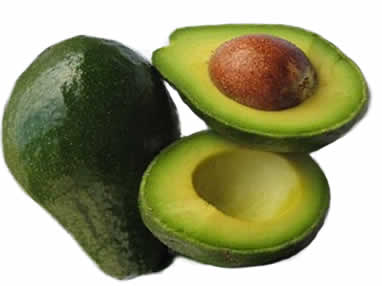 Painkillers will do the trick for the occasional headache, but if you’re slammed with them on a weekly or even daily basis — as 45 million Americans are — you need a better solution. Here, proven strategies that can ease, and even eliminate, chronic headache pain
Painkillers will do the trick for the occasional headache, but if you’re slammed with them on a weekly or even daily basis — as 45 million Americans are — you need a better solution. Here, proven strategies that can ease, and even eliminate, chronic headache pain
Rack open a window
When a home is well-sealed, indoor levels of mold, perfumes, smoke and other irritants can skyrocket, worsening headaches for one in four sufferers, according to research at Johns Hopkins University. An easy Rx: Open a few windows to air out those pollutants. Keep them open long enough for a refreshing breeze to sweep out stale smells. Repeat as necessary to circulate some fresh air throughout your home, study authors say.
Sneak in some ginger
Add 1/2 teaspoon of fresh ginger to your daily diet, and you could tamp down even chronic headaches within one week, say researchers at Connecticut’s Manchester Memorial Hospital. Credit ginger’s active ingredient, gingerol. Danish studies suggest this powerful anti-inflammatory that is chemically similar to aspirin blocks the formation of pain-triggering compounds called leukotrienes in the brain.
Tip: Use ginger to add a zesty dash of flavor to stir fries, rice dishes, soups, casseroles and dipping sauces, grate it over ice cream, or steep it to make a tea.
Sport sunglasses
One in three headaches are triggered — or made worse — by blasts of sunlight, say UCLA researchers. The reason? When bright light hits the delicate retinas in your eyes, it activates your brain’s pain nerves. To stay ache-free, slip on shades before you head outdoors on bright days, even if you don’t think you need them.
Sniff tangerine essential oil
Spend one minute three times daily relaxing and inhaling the tangy, sweet smell of tangerine essential oil, and you could reduce your risk of tension headaches in as little as one week, say Stanford University researchers. Tangerine’s aromatic compounds soothe the central nervous system, relax tight neck and scalp muscles, plus boost your brain’s production of a pain-soothing compound called gamma-aminobutyric acid (GABA), says Hyla Cass, M.D., author of Eight Weeks To Vibrant Health. Look for it in health and whole foods stores.
Avoid herbal slip-ups
If you use prescription pain medication to tame your worst headaches, check with your doctor or pharmacist before trying any herbal remedies. Surprising University of Utah research suggests that some of today’s most popular herbs — including ginkgo, ginseng, St. John’s wort and valerian — can counteract prescription pain meds, leading to nasty headache flare-ups.
Warm up before working out
According to Columbia University researchers, up to one in four headache-prone women are hit with brain pain within five hours of exercising if they jump into vigorous workouts without warming up. The culprit? Rapid changes in blood flow can trigger painful swelling of brain blood vessels. To prevent the problem, do your first 10 minutes of exercise at a leisurely pace, then gradually pick up the speed, Columbia researchers suggest.
Eat more vegetarian meals
When women pile their plates with fruits, vegetables, legumes and 100-percent whole grains, their headache frequency is reduced by 70 percent, and their attacks are 66 percent shorter and less painful, say doctors at California’s Loma Linda University. “These healthy carbs contain hundreds of natural anti-inflammatories that quickly lower the amount of headache-triggering inflammation your body produces,” says Neal Barnard, M.D., president of the Physician’s Committee for Responsible Medicine in Washington, D.C.
Sip mullein leaf tea
Drink 16 ounces of this herbal brew daily and you’ll tamp down blood vessel and scalp muscle inflammation, reducing your risk of headache flare-ups in as little as 10 days, say Stanford University researchers. Credit mullein’s rich supply of natural anti-inflammatories. Look for mullein leaf tea in whole-food stores and well-stocked department stores like Walgreens. It can taste a bit bitter, so sweeten to taste with sugar or honey.
Level out your estrogen
Almost 60 percent of women struggle with their worst headaches right before their periods hit. Called menstrual migraines, these headaches are set off by sudden estrogen dips. A quick fix: If you take birth control pills, Yale University researchers suggest asking your doctor about skipping the placebos so your estrogen levels can stay steady all month long. Not on the pill? Consider using an estrogen patch during your premenstrual week, so those pain-triggering hormone plunges don’t occur.
Get up with your alarm
Get your sleep, but don’t linger in bed. According to University of Texas researchers, 79 percent of headache sufferers are prone to pain if they lounge in bed too long — even if they’re getting roughly the same amount of sleep each night. “Changing your wake-up time has a huge impact on brain function, lowering your pain threshold and making your brain blood vessels a lot more likely to spasm,” explains Michael Smolensky, Ph.D., author of The Body Clock Guide to Better Health.
Tip: Set your alarm so you get up at roughly the time every day, even on weekends.
Treat your snoring
Almost 30 million Americans struggle with sleep apnea — short breathing pauses during sleep – which triggers loud snoring, daytime fatigue, and nasty morning headaches. Those lapses in breathing allow carbon dioxide to build up in the bloodstream, which is a powerful headache trigger, explain researchers at Columbia-Presbyterian Eastside. If you’ve been told you snore loudly or stop breathing during sleep, report it to your doctor. Columbia studies show treating sleep apnea can make morning headaches vanish in as little as two days.
Take melatonin
Even if you don’t have sleep apnea, it may be wise to take a natural sleep aid . In a surprising Brazilian study, when migraine-prone patients took 3 milligrams of melatonin 30 minutes before bedtime, their headache frequency (and the level of pain) was cut in half. For one in four subjects, this simple treatment erased their migraines within three months! Turns out this sleep-inducing hormone helps prevent one of the most common migraine triggers — the amount or quality of sleep people get each night.
Soothe stress with a little “me” time
Carve out 30 minutes each day to relax and unwind, and your headache attacks could be cut in half within two weeks, say researchers at Utah State University. “Making time to nurture yourself drastically cuts your production of pain-triggering stress hormones,” explains Jacob Teitelbaum, M.D., author of Real Cause, Real Cure. Try leisurely baths, deep breathing, yoga, napping or any other calming activity that fits easily into your schedule.
Tame rebound pain
If you’re getting at least three headaches every week, chances are good you’re struggling with rebound headaches (pain that flares every time painkillers wear off). To fix the problem fast, try switching to plain aspirin or acetaminophen. “Although most over-the-counter painkillers cause rebound headaches, those two are completely innocent,” says David Buchholz, M.D., author of Heal Your Headache. Make the switch, and your headache flare-ups could be cut in half within one week, he says.
When it’s time to see a doctor
If none of these solutions work, you probably have migraines and should see a doctor to get them under control.
According to Cleveland Clinic researchers, women with migraines often need preventive meds to really get their pain under control. Yet fewer than half of all migraine sufferers have been accurately diagnosed. If you have even one of these migraine symptoms, and at-home remedies haven’t made a dent in your misery, talk to your doctor about it:
Your headaches last 4 to 72 hours
You’d describe the pain as throbbing
Your headaches worsen if you make abrupt movements (like bending down to pick something off the floor)
You’re sensitive to light or sound, or feel nauseous, during headache attacks
Source: stumble upon











